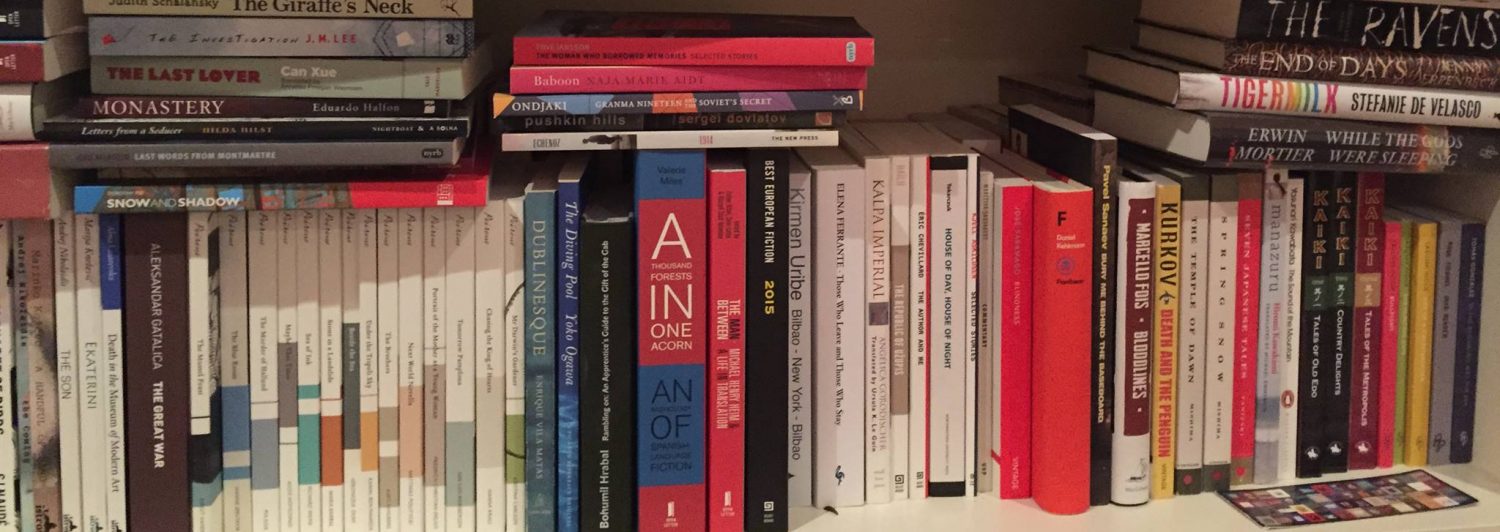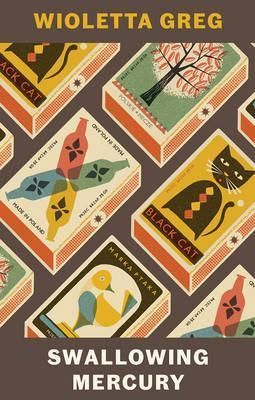
Released in November 2021 in the UK and Australia Olga Tokarczuk’s latest work to be translated into English, ‘The Books of Jacob’ (translated by Jennifer Croft), is not due for release in the United States until February 2022.
Being fortunate enough to get a head start on a significant reading audience is a gift, it means I have two months to work my way through the 965 pages before writing a review that coincides with the North American release. ‘The Books of Jacob’ consists of seven books, of which I’ve managed to complete two, ‘The Book of Fog’ and ‘The Book of Sand’. Today I am going to share with you my initial thoughts.
On the first page there is an alternate title:
“The Books of Jacob, or: A fantastic journey across seven borders, five languages, and three major religions, not counting the minor sects. Told by the dead, supplemented by the author, drawing from a range of books, and aided by imagination, the which being the greatest natural gift of any person. That the wise might have it for a record, that my compatriots reflect, laypersons gain some understanding, and melancholy souls obtain some slight enjoyment.’
Olga Tokarczuk has given us a hint, before you even approach one of the 965 pages, that this is an epic journey, part fact, part fiction, controversial for Poles, fantastic yet educational and if you are melancholic slightly enjoyable.
The ‘Prologue’ commences on page 965 and the page count goes backwards, have we joined the narrative once it is complete and are working our way backwards towards commencement? Yente sees everything from above herself, “Yente sees all.” (“Told by the dead.”) In the opening paragraph “she” (let’s assume it is Yente) swallows a piece of paper:
Once swallowed, the piece of paper lodges in her esophagus, near her heart. Saliva-soaked. The specially prepared black ink dissolves slowly now, the letters losing their shapes. Within the human body, the word splits in two: substance and essence. When the former goes, the latter, formlessly abiding, may be absorbed into the body’s tissues, since essences always seek carriers in matter – even if this is to be the cause of many misfortunes.
Is this a story where you absorb the essence as the substance will disappear?
‘The Books of Jacob’ is made up of seven books, ‘The Book of Fog’, ‘The Book of Sand’, ‘The Book of the Road’, ‘The Book of the Comet’, ‘The book of Metal and Sulfur’, ‘The Book of the Distant Country’, and ‘The Book of Names’. There are innumerable references to language:
For some time they seek a common language. Jacob starts with what the Jews of Smyrna speak, Ladino, and Nahman, not understanding, responds in Hebrew. Neither of them feels right chatting in the street in the holy language, so they break off, and Nahman switches to Yiddish. But here again Jacob has a rather strange accent, so instead he responds in Turkish, fluently, joyfully, as though finding himself suddenly on home turf, though Nahman doesn’t feel completely at home here. In the end they speak a mixture, not worrying about the provenance of words; words are not nobility that want their genealogical trees retraced. Words are merchants, swift and useful, now here, now there.
One character, Father Chmielowski, is admonished for his overuse of Latin, he defends his usage in a letter:
You ask: Why Latin? And You, like other Members of the fairer Sex, advocate for Polish to be more widely employed in written Forms. I have Nothing against the Polish Language – but how are we to speak in it, since there aren’t enough Words?….
…The Polish Language is clumsy in so many Ways and sounds like a mere Peasant’s Tongue. It is suitable for the Description of the Landscape, of Agriculture at the most, but it would be difficult to express complex Matters in it, or higher Themes, or spiritual ones. Whatever Language a Person speaks is the Language in which he thinks. And Polish is neither clear nor tangible. It is more suited to a Traveler’s Descriptions of the Weather, but not to Discourses, where one must exert one’s Mind and express oneself clearly. Well, it does lend itself to Poetry, my dear Madam, our Sarmatian Muse, for Poetry is indistinct and intangible.
Books, language and readers:
I took to heart what Isohar had taught us. He said that there are four types of readers. There is the reading sponge, the reading funnel, the reading colander, and the reading sieve. The sponge absorbs everything it comes into contact with: and it is evident he remembers much of it later too. But he is not able to filter out what is the most important. The funnel takes in what he reads at one end while at the other, everything he reads pours out of him. The strainer lets through the wine and keeps the sediment: he ought not read at all – it would be infinitely better if he simply dedicated himself to some manual trade. The sieve, on the other hand, separates out the chaff to give a result of only the finest grains.
This story is told twice, is it Olga Tokarczuk advising us to be sieve readers, or is it a MacGuffin? There is also another reference to the “four paths of reading and understanding”.
There were once four great sages, whose names were Ben Asai, Ben Soma, Elisha ben Abuyah, and Rabbi Akiba. One after the other they went to paradise…Ben Asai, well, he saw it, and he died…he got into the River Pishon, a name that can be translated as: lips that learn in the strictest sense…
Ben Soma, well, he saw it, and he lost his mind….he got into the River Gihon, a name that tells us that the person is only seeing the allegorical meaning….Elisha ben Abuyah…looked and became a heretic. That means he got into the River Hiddekel, and he got lost in the great many possible meanings….Only Rabbi Akiba went into paradise and came back unscathed, which means that having plunged into the River Phrath, he got the deepest meaning, the mystical one.
There are many groups of four, the four readers, the four great sages and back to language, taken from the Holy Book the Torah’s structure, four letters:
“P, pshat, that’s the literal meaning, R, remez, that’s the figurative meaning, D, drash, that’s what the learned say, and S. sod, that’s the mystical meaning.”
A work that reads like parables from a Holy Book, thousands of characters, small anecdotes that may appear irrelevant, however what is the allegorical meaning? You feel as though you are being taken along a mystical journey, now to use the sieve and keep the finest grains, and take away the deepest meaning, the mystical one. ‘The Book of the Road’ starts at page 701, remember it goes backwards, I’ll slowly read on and possibly report back in once I’ve finished the next two books.
My copy of ‘The Books of Jacob’ is courtesy of Text Publishing.






